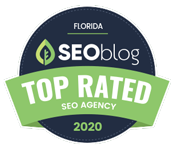
How to Maximize Your Google Ads Budget
Everything you need to know about managing PPC in small business Interview is elucidated in How to Make Google Ads Budget do More for You for Small Businesses. You can find tips, samples, and strategies that deliver improved results in this.
Welcome to our deep dive guide on small business PPC management. In the How-To Guides & SEO Tips industry or wherever you start, this article has a detailed content on what small business PPC management is all about, why is it of paramount importance, and how you can make the best use of it.
What is PPC management for small businesses?
PPC management for small businesses means, overseeing the pay per click ad campaigns on Google Ads, etc., and optimizing them. In a bit of a different level or sense, its crucial strategic investments of money materially legitimacy with every spent cent of an advertising budget unlike larger companies in mass marketing which have to meet costs over and over and over. To help guarantee the delivery of the highest return from your Google Ads campaigns, one must prove the worthiness of a pay-per-click budget.
Typical management really uses techniques such as keyword research, organizing campaigns, tracking overall performance, and also making adjustments on an ongoing basis. Its being fully in place of pay-per-click planning taking into consideration and would give the highest ROI for the Google Ads campaigns.
For such plans to be delivered, PPC management should include the following:
- In exchange for selecting those keywords that match intent in searching by your audience
- creating a stimulating ad copy that takes clicks
- developing landing page to converts visitors to customers and
- watching ROI and making adjustments to bid or target as necessary.
Thus, with fundamental knowledge in these fields, even small businesses can outrank the big ones in Google Ads.
Why PPC management for small businesses Matters for How-To Guides & SEO Tips
This is what digital marketing could bring to small businesses that are tech-savvy in realizing how they can venture through Google Ads, drive that growth through sales, and capture attention alike. Beyond digital marketing trends, it has been noticed that an increasing number of small ventures also participate in the same in 2025.
More to that, the competition is becoming distinctly evident among those who are still not able to deliver effectively within this realm. Consequently, at the very least, the budget begins to sag without much more budget room. In times where visibility is everything in the online community, PPC presents small businesses with an instant top-of-page Google search result presence-an event that they may never achieve through other search engine optimization initiatives, irrespective of how strategically planned they may be.
Budgeting for your paid advertising will significantly determine how effective and efficient your campaigns will be managed!
For example:
A possibly small local pastry shop, it does not have more than $500 to spend on a monthly basis on digital advertising, as compared to larger chains against which one is competing. With properly managed PPC, this bakery will be able to target its area where customers live with very specific keywords like "fresh cupcakes near me" and run ads on those words during peak hours of search traffic. Without PPC management, the same amount goes towards pay-per-click but in vain, indulging in broader yet completely ineffective terms. Furthermore, the time isn't taken into account-for example, most searches happen at 2 in the late morning and then after 9 in the evening-making this kind of advertising a real waste of one's bucks.
Advertisers also use PPC for moving fast traffic to new blog posts or how-to pieces in How-To Guides & SEO Tips. These assets are educational, and so they should make users searching for advice particularly eager to interact. However, being out of lock on your targeting or your message sometimes might bring in the wrong audiences-searchers who click on the PPC ads but bounce off immediately after that. Avoiding such mistakes with PPC requires a deft hand in PPC management.
In the case of small businesses, data-driven PPC management is invaluable. PPC boils down to progress tracking and weekly KPI checking for businesses with limited investment. Weekly monetary-outcome analyses can reveal the areas where efforts need to be increased in order to realize substantial profits for the small business. Such an understanding is crucial for ensuring that even the minutiae of where ad spend is applied are within your regulating parameters, and that no portion of the total is wasted.
Latest Tools and Trends in PPC Management for 2025
In August 2025, PPC platforms already advanced enough to invade automation, chatbox-driven recommendations, and machine-algorithmic bid-strategies. Moving forward, such campaigns manage results best left up to the machine until you give it a clear business goal to work towards.
Fundamental emerging initiatives to be expected concerning Google Ads helping out your small business include;
- Smart Bidding Enhancements Google: Smart Bidding algorithms now include device-type, location, behavioral-intent real-time signals for very accurate optimization of bids.
- Audience expansion: Google Ads has enabled more advanced data for audience insights and targeting, including predictive audiences, based on previous customer behavior.
- Local Services Ads: For small, service-based businesses, those are ads put at the top of search results and cost per lead. This helps reduce risk and align spending to actual outcome.
- Embedding Video Ads: YouTube Shorts and in-stream ad runs can be accessed now by SMBs at lesser costs to maximize the visibility without burning a hole in their pockets.
It is necessary for a business to stay updated how the scope of each media dollar can be adjusted over time. The tools you stop and use make scaling spends on paid campaigns more beneficial than those that only complicate.
This toolkit makes for a more complex—and rewarding—PPC management for small businesses. Even with just those tools, an effective approach can make significant returns on very small budgets.
Now, you know how PPC management for small businesses impacts your paid publicity expenses budgeting performance. Later, there will be illustrations.
Tips for optimizing paid ads budgeting with PPC management for small businesses
Small-scale businesses aimed at making the most of their marketing dollars must develop the expertise of small businesses in PPC management-which has to do with achieving a balance between reach and cost. Among the most successful of all strategies is the one that imposes tight control over spending on paid ads, while it allows a maximum possible ROI from PPC campaigns. The following are important clues you need to work out your budget with:
- Set limits from day of the month daily. Consistent monthly and daily limits prevent loss through overexposed spending. This works well, including Google Ads, where you're able to lay out individual daily ad placements to stretch the investment over the month more consistently.
- Target longtail keywords: These keywords are usually less competitive and have low costs per clicks (CPC), making them to be perfect for small businesses with minimal budgets for marketing. Find specific and thoughtful applicable keywords with some keyword planner tool from purchasing activity.
- Geo-Targeting: This is where one has to choose certain areas such as location or service-area targets upon which to narrow down ads. A more tighter geographic targeting should translate into a higher conversion rate, it makes sure that one doesn't waste potential customers who are more prone to engage in one's business.
- Restricted Days and Times for Ads: The 24/7 adverts will not actually work out well always, you have to utilize the analysis report to trace when the audience usually is active when to place ads at such points.
- A/B Experiment - Split test everything: Split-test everything: headlines, descriptions, and landing pages; optimize it continuously to find what produces the optimal return. After identifying high performers, allocate more budget to them.
- Monitor Quality Scores: Just make sure that the advertising campaign is in line with what's on the advertisement's landing page. The more pertinent those ads are, the cheaper the clicks; eventually, it will lead to more ad placements.
Common mistakes in PPC management for small businesses
Small businesses, forming the smallest scale of a business establishment, to the biggest multinational company, is traversing towards a huge proportion of the online business world. Granted with the fact of having a much smaller set budget available for utterance by their good intentions, they will attest to falling into common PPC problems through which the budget throwing has been unwisely wasted. There are a few common glitches to avoid:
- Skipping keyword research: Directly plunging in after launching campaigns without going through extremely thorough keyword research gets the user irrelevant traffic and wasted ad spend. Always, use strong tools for keyword work done.
- Overbidding too early: As getting high bid ages while getting launched is happen in less time and quickly, it can end your budget faster of course. Start implementing moderate biddings first; thereafter monitor performance against the campaign, and adjust as if necessary in terms of ROI.
- Lack of conversion tracking: Without following the steps of conversion resulting from both the sale and inquiry, no one would make out which advertisement can smoothly run a task. Implement the conversion through such tracking like pixels, analytics platforms, and so on.
- Running too many campaigns: There's quite the promising revaluation while having to juggle numerous campaigns concurrently; Spread what may seem to be equal rewards; but measuring quality leverages such an outlay and then builds up by stages, based on performance.
- Ignoring negative keywords: Without the correct use of negative keywords, the impression is likely that the ad will be listed for even more isolated search on the Common Shells; thereby bringing about looney tunes CTR and loss of paid ad budgets.
How PPC management supports SEO strategies for small businesses
While many small business owners believe that the pay-per-click (PPC) and SEO are two different modes for marketing, PPC management can greatly enhance organic visibility, as well as helping to make up for what is not there as quickly. The two work as follows:
- Keyword ideas: Pay-per-click campaigns give you an very good understanding of new data on keywords as it develops, for it updates the performance measures of those keywords like CTRs, quality scores, and conversion rates, which can be used that much more for SEO only when incorporated to isolate which high-performance keyword could be improved.
- Testing landing page performance: PPC traffic can be sent to landing pages for testing and adjustment fast. This optimizes high performers for organic search, thus improving ranking and conversions generally.
- Increase instant visibility: Where SEO needs time, PPC helps you jump right to the top of the SERPs. This quick jump in visibility allows you to generate traffic, while your organic strategy is in the process of scaling.
- Back up seasonal or event-driven promotions: pay per click to tout short-term offers, and retarget people who have visited a site with a message about those products. These temporal opportunities will never meet the long-term SEO objectives but in a well-utilized way time-bound can in potential cases lead to profitability.
Analyzing results and refining campaigns
The importance of a small business in advertising is regular examination and use of optimization as essential in furthering the management of PPC advertising. Ways to assess performance and pivot effectively include:
- Use platform reporting: The platforms themselves offer very detailed analytic reports to the company users for assessing impressions, clicks, CTR, costs per click, CR, and site utilization outcomes with Google Ads and Microsoft Ads.
- Combine with Google Analytics: Combining the data from PPC with Google Analytics provides a fuller picture of user activities, whether they are hopping off the page immediately, staying there for a while, or going beyond clicks and page-views.
- So the learning can be put into action: Once the lesson is learned, fine-tune the target, bid, and copy. Gradual improvements over time based on hard facts really add up to enhance ROI of a campaign.
- Set audit schedule: Set up regular audits, be it monthly or quarterly, to find the underperforming ads with waste ad spend. Look for underusing keywords and then adjust the campaigns with up-to-date market trends.
Frequently Asked Questions
What is PPC management for small businesses in simple terms?
PPC management for small businesses is a strategy or concept used to improve paid ads budgeting by focusing on structured, intentional methods.
How does PPC management for small businesses help?
It helps improve performance by aligning your content with search behavior and industry best practices.
Can I apply PPC management for small businesses myself?
Absolutely. With the right tools and structure, even beginners can begin applying these principles effectively.
What tools should I use?
Start with Google Search Console, SEMrush, and keyword research tools. These provide visibility into how PPC management for small businesses impacts performance.
Scaling Up with Expert PPC Strategy
Tracking multiple ad sets, segmenting your audience, and trying out different creatives all need supervision and optimization regularly. It becomes critically important to be a partner with seasoned PPC specialists as projects become even more complex and budget increases. The odds of success using local service ads and Google Shopping promotions remain higher whenever a professional hand-holding parenthood comes in with a seasoned PPC agency managing services.
Professional Support in PPC Management for Small Business-aspects that can be considered are getting a detailed examination, adjustment, and scale on campaigns. One good thing about experts is they know what to look for where digging in deeper and providing data patterns that you might overlook, letting you dig much further and find opportunities that had somehow become invisible in keyword bidding, and tailor geotargeting so you'll not even waste a cent on placements.
Common Challenges and How to Overcome Them
- Money Burn: Small budget reductions have the quickest rate of disappearance within a small business. To battle such a phenomenon, utilize negative keywords, day-parting strategies, and to focus geographically where and when certain ads will show up.
- No conversion tracking: Conversion particularly signals in form submissions or phone call tracking would decrease any guesswork relating to the desired way to measure success.
- Low CTRs: Targeting the wrong audiences or extremely weak ad copy. A/B testing the headlines and descriptions of ads can dramatically increase CTR and ad quality scores.
Actionable Optimization Tips
The following steps would refine and improve on your budgeting for paid ads, which would result in maximum ROI at the end of the day:
- Test your Ads: The AD creative that resonates more with your audience could indicate new value propositions, new calls to action, or a set of keywords.
- Targeted Marketing: Delineate your demographic, behavioral, and reinstall audiences for targeting opportunities.
- Optimize Your Landing Pages: Instruct your visitors to expect what they saw in the ad by upgrading their loading speed on the device used to surf and the basic ease of landing on the website.
- Spy on the Competition: Using tools like SpyFu or SEMrush, study keywords and advertising copy from your competitors for inspiration and gap analysis.
Next Steps
If you're ready to take your PPC success to the next level, expert help is just a click away. Get the insights and support you need to make your ad spend work harder and smarter.
Request Your Free Digital Marketing Consultation Today!






























